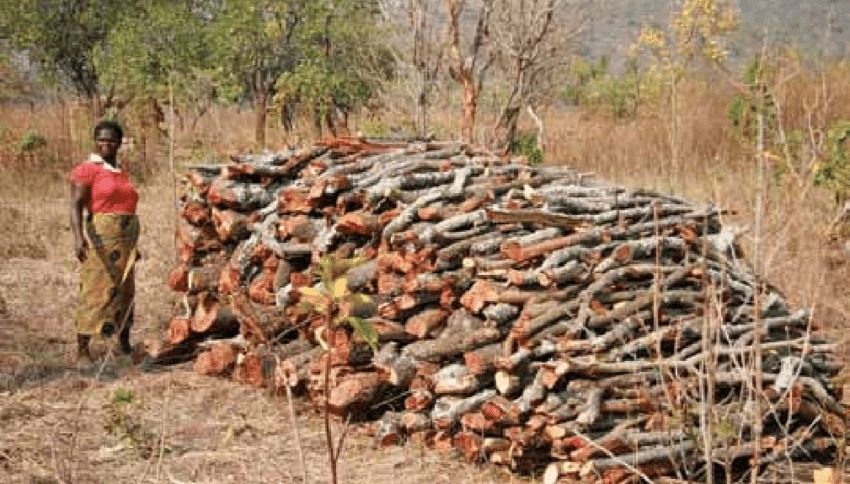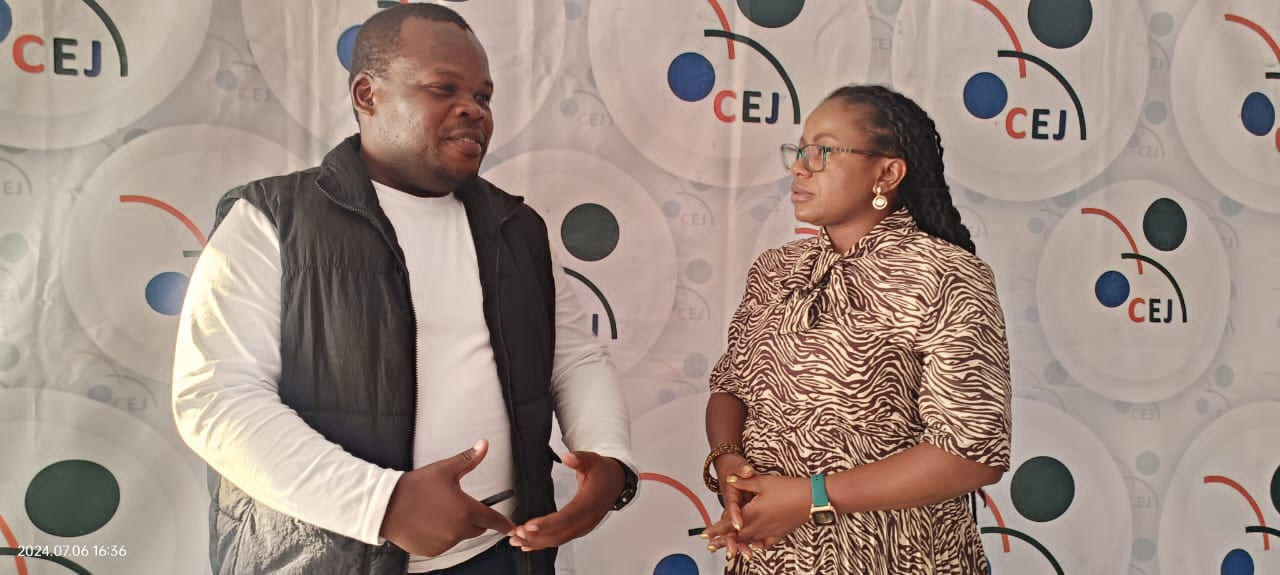The Forestry Institute of Zambia (FIZ) is full support for the Government’s initiative to address the pressing issue of deforestation, particularly in the identified districts of Mumbwa, Itezhi Tezhi, and Shibuyunji.
The Government through Minister of Green Economy and Environment Collins Nzovu announced the directive to ban issuance of permits for charcoal production in certain Districts of Central Province.
And in a statement this morning, FIZ Secretary General Eng. Chaliafya Katungula said the unprecedented levels of deforestation pose a significant threat not only to the environment but also to the livelihoods of countless Zambians who depend on the forests for their sustenance and economic well-being.
Eng. Katungula explained that the decision to ban the issuance of charcoal production permits underscores the gravity of the situation and the urgent need for decisive action.
He said forest degradation and deforestation are indeed critical concerns, especially in light of the recent declaration of a national disaster by the esteemed Republican President.
Eng. Katungula stressed the need to swiftly act to preserve the natural heritage for current and future generations.
He further stated that the ban on charcoal production permits should not be limited to the three mentioned districts but should be extended to all parts of Zambia.
Eng. Katungula further stated that trade in charcoal, while lucrative, exacts a heavy toll on the Zambian environment and contributes significantly to deforestation.
He since emphasised that a comprehensive and nationwide ban on charcoal production is necessary to curb this destructive practice and promote sustainable alternatives.
“One such alternative that warrants exploration and promotion is the adoption of charcoal briquettes to replace raw charcoal. Charcoal briquettes offer a more environmentally friendly and sustainable solution, utilizing waste from both forest products and agricultural sources.”
“Initiatives such as the ongoing project in Katete including same initiatives in other districts demonstrate the feasibility and potential impact of transitioning to charcoal briquettes as a cleaner and more sustainable energy source.”
“It is crucial to emphasize that while we support this emphatic and courageous move by the government, measures must be put in place to protect the livelihoods of those in the charcoal value chain and promote alternative energy sources for charcoal users.” Eng. Katungula said
Meanwhile, Eng. Katungula called on the government to place emphasis on the measures that will be put in place to ensure that those currently affected by this ban can easily adopt new and more sustainable energy sources.
“These measures may include incentivizing business houses and persons engaged in importation and trade of alternative energy technologies by removing any taxes or duty associated with such completely as well as exploring the enhancement of possible means of utilizing the Constituency Development Funds to finance the access to alternative energy sources by members of the public.”
“In implementing these interventions, it is anticipated that compliance with environmental standards and guidelines will increase, leading to a reduction in deforestation rates and the restoration of degraded ecosystems. Programmes focusing on sustainable land and forest management, community-based natural resources management, water catchment protection, and natural resource valuation will be key to achieving these objectives.”
“As we embark on this journey towards sustainable development, it is essential to engage all stakeholders, including local communities, government agencies, civil society organizations, and the private sector. Collaboration and collective action will be vital in overcoming the complex challenges posed by deforestation and environmental degradation.” Eng. Katungula stated
And the FIZ Secretary General encouraged citizens to embrace this development and not to have any fear regarding the ban.
“As earlier alluded to, this action well established in the 8th National Development Plan on page 64 to be precise and is not targeted at specific region but will roll out to the rest of the country in due course. We encourage Zambians to embrace a mindset shift and begin to invest in alternative energy sources such as solar for their domestic lighting, entertainment and cooking at household level.
The Forestry Institute of Zambia stands ready to support and collaborate with the government and all relevant stakeholders in implementing the ban on charcoal production permits and promoting sustainable alternatives. Together, we can work towards a future where our forests are preserved, our environment is protected, and our people thrive in harmony with nature.” Eng. Katungula





